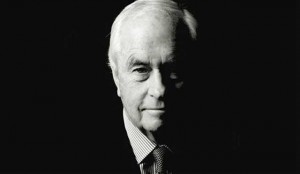Days after officials from the Penske Automotive Group expressed their commitment to stand by the struggling Smart brand, they’ve been given their walking paper by Daimler AG, which produces the minicars.
Operation of the franchise, which has seen its sales in the U.S. collapse since a briefly successful 2008 launch, will be taken over by Mercedes-Benz USA by the middle of the year. MBUSA said it has already begun negotiations to end Penske Automotive Group’s management, sales and marketing activities of the Smart car in the United States.
The announcement also appears to spell the end of Penske’s efforts to rebuild the Smart brand in the U.S. by turning to Nissan, which was expected to begin providing a new four-seat model that was to be introduced wearing a Smart badge, later this year.
Analysts have argued that the two-seat Smart fortwo was simply not in tune with American needs. Daimler has said it was developing a larger model of its own, but that wasn’t expected to reach market until 2014. Penske managers, including Smart boss Jill Lajdziak, had contended that was too long to wait.
But PAG’s plans to build its own Smart model was greeted coolly by Daimler officials, with its corporate culture of being notoriously resistant to any kind of outside influence. The decision to turn to Penske, in the first place, was controversial, and only occurred after Daimler spent years struggling – unsuccessfully – to come up with its own working plan to launch Smart in the States.
The transition is expected to occur by the end of the second quarter of 2011 and will mean the end of the line for the Bloomfield Hills, Mich.-based Smart sales and marketing organization, which has about two dozen employees.
“Introducing the Smart brand to the U.S. has been a unique opportunity for us,” PAG Chairman Roger Penske said. But he added that the consolidation made sense.
“Aligning Smart distribution with Daimler, as it is worldwide, is the logical next step for the Smart brand in the U.S. This alignment will enable the Smart brand to grow through the Mercedes-Benz dealership network and lead the way in conservation and meeting future fuel economy standards.”
In a statement out of Germany, Daimler said the change in management will better allow it to meet its growth strategy for Smart, which was recently reorganized and now operates as an independent brand – though it remains part of the Mercedes-Benz Cars business unit.
“We are very excited about working toward integration of Smart into the MBUSA organization, and look forward to working with our dealer partners to exceed customer expectations for this unique vehicle,” said Mercedes-Benz USA President and CEO, Ernst Lieb.
“The addition of Smart, combined with our Autohaus dealer initiative, will help us build upon the tremendous momentum the Mercedes-Benz brand has achieved here in the U.S.,” Lieb said.
Penske’s smart USA organization had just kicked off sales of the Smart fortwo electric vehicles.
Introduced in 1998, Smart has been a major headache from Day One for what was then known as DaimlerChrysler, and now Daimler AG. It has undergone a variety of reorganizations and product strategy shifts. The upcoming expansion in its line-up will be achieved in partnership with French-based Renault which is, ironically, part of a global alliance with Nissan, which was to have produced the four-door Smart model – but for sale only in the U.S. The Renault-based products will be sold worldwide.

